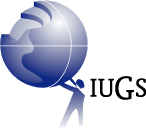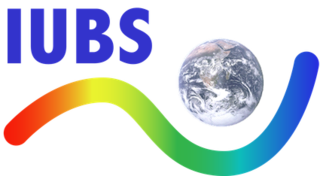Related Research Articles
The United Nations Convention to Combat Desertification in Those Countries Experiencing Serious Drought and/or Desertification, Particularly in Africa (UNCCD) is a Convention to combat desertification and mitigate the effects of drought through national action programs that incorporate long-term strategies supported by international cooperation and partnership arrangements.

The Geological Society of London, known commonly as the Geological Society, is a learned society based in the United Kingdom. It is the oldest national geological society in the world and the largest in Europe with more than 12,000 Fellows.

A geopark is an area with internationally significant geology within which sustainable development is sought and which includes tourism, conservation, education and research concerning not just geology but other relevant sciences.

The International Union of Geological Sciences (IUGS) is an international non-governmental organization devoted to international cooperation in the field of geology.

The International Union of Biological Sciences (IUBS) is a non-profit organization and non-governmental organization, founded in 1919, that promotes the biological sciences internationally. As a scientific umbrella organization it was a founding member of the International Council for Science (ICSU).
The International Social Science Council (ISSC) was an international non-governmental organization promoting the social sciences, including the economic and behavioural sciences. It was founded in Paris, France between 6 and 9 October 1952, under the auspices of UNESCO, following a Resolution at the 6th UNESCO General Conference in 1951. It was adopted on 19 September 1972, completed and revised on 14 November 1979, and underwent multiple revisions on 17 December 1985, 3 December 1992, 27 November 1998, 8 November 2006, and finally 10 December 2010. ISSC is registered in accordance with French Law.
The United Nations General Assembly declared 2008 as the International Year of Planet Earth to increase awareness of the importance of Earth sciences for the advancement of sustainable development. UNESCO was designated as the lead agency. The Year's activities spanned the three years 2006–2009.

The International Permafrost Association (IPA), founded in 1983, has as its objectives to foster the dissemination of knowledge concerning permafrost and to promote cooperation among persons and national or international organisations engaged in scientific investigation and engineering work related to permafrost and seasonally frozen ground. The IPA became an Affiliated Organisation of the International Union of Geological Sciences in July 1989.
The Geological Association of Canada (GAC) is a learned society that promotes and develops the geological sciences in Canada. The organization holds conferences, meetings and exhibitions for the discussion of geological problems and the exchange of views in matters related to geology. It publishes various journals and collections of learned papers dealing with geology.
The IAGC is affiliated with the International Union of Geological Sciences and has been one of the pre-eminent international geochemical organizations for over thirty-five years.
The International Geoscience and Geoparks Programme (IGCP) is a cooperative enterprise of UNESCO and the International Union of Geological Sciences (IUGS).
The Group on Earth Observations (GEO) coordinates international efforts to build a Global Earth Observation System of Systems (GEOSS). It links existing and planned Earth observation systems and supports the development of new ones in cases of perceived gaps in the supply of environment-related information. It aims to construct a global public infrastructure for Earth observations consisting in a flexible and distributed network of systems and content providers.
Iain Simpson Stewart is a Scottish geologist who is currently Jordan-UK El Hassan bin Talal Research Chair in Sustainability at the Royal Scientific Society in Jordan. He is a UNESCO Chair in Geoscience and Society and formerly a member of the Scientific Board of UNESCO's International Geoscience Programme. Described as geology's "rock star", Stewart is best known to the public as the presenter of a number of science programmes for the BBC, notably the BAFTA nominated Earth: The Power of the Planet (2007).
The European Association of Science Editors is a non-profit membership organisation for people interested in science communication and editing. Founded in 1982, in France, EASE now has an international membership.

The International Association for Engineering Geology and the Environment, formerly International Association for Engineering Geology, also known as IAEG, is an international scientific society which was founded in 1964. It is affiliated with the International Union of Geological Sciences (IUGS) and has 3,798 members and 59 national groups all over the world.
Sharon Mosher is an American geologist. She did her undergraduate work at University of Illinois Urbana-Champaign. After earning an MSc from Brown University, she returned to the University of Illinois to get her PhD in Geology in 1978. Since 2001 she has held the William Stamps Farish Chair at University of Texas, and, since 2009 she has served as the dean of the Jackson School of Geosciences at Texas. In 2013 she became the president of the American Geosciences Institute.

The International Year of Light and Light-based Technologies 2015 or International Year of Light 2015 was a United Nations observance that aimed to raise awareness of the achievements of light science and its applications, and its importance to humankind. Under the leadership of UNESCO, the IYL 2015 brought together hundreds of national and international partners to organize more than 13,000 activities in 147 countries. The audience reached by the IYL 2015 is estimated to be over 100 million.
The International Science Council (ISC) is an international non-governmental organization that unites scientific bodies at various levels across the social and natural sciences. The ISC was formed with its inaugural general assembly on 4 July 2018 by the merger of the former International Council for Science and the International Social Science Council (ISSC), making it one of the largest organisations of this type.
Hans Thybo is a Danish Geophysicist and Geologist. He was a Professor of Geophysics at the Geological Institute and the Institute for Geography and Geology at the University of Copenhagen, as well as at the Centre for Earth Evolution and Dynamics. at University of Oslo. He is a Professor at the Eurasia Institute of Earth Sciences at Istanbul Technical University and at the School of Earth Sciences at China University of Geosciences, Wuhan. Until a fusion in 2007 he was elected Head of Department at the Geological Institute and member of the board of Geocenter Copenhagen. He was Professor at Department of Geosciences and Natural Resource Management until he was dismissed from his Chair in 2016. The dismissal was later found illegal and violating employment agreements by an arbitration court and Thybo received a modest economic compensation, but the University of Copenhagen did not re-employ Thybo, nor did the University sanction his accusers. The internationally agreed principle of tenure for university professors does not apply to universities in Denmark. Thybo has earlier been associated with Technische Hogeschool Delft and Stanford University.
References
- ↑ United Nations General Assembly Session 58 Resolution211. International Year of Deserts and Desertification, 2006A/RES/58/211 page 2. 23 December 2003. Retrieved 2007-11-19.